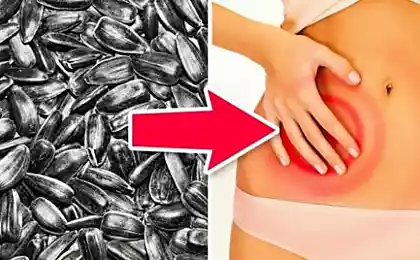337
The five-meal myth. Why is that bad for weight loss?
Eat often, but little or rarely, but in large portions? The question of how often to eat has perplexed many thinking men and women for centuries.

But the final answer was never found. To this day, scientists have not come to a consensus: the discussion continues, as the research data are contradictory. Let us consider two polar points of view.
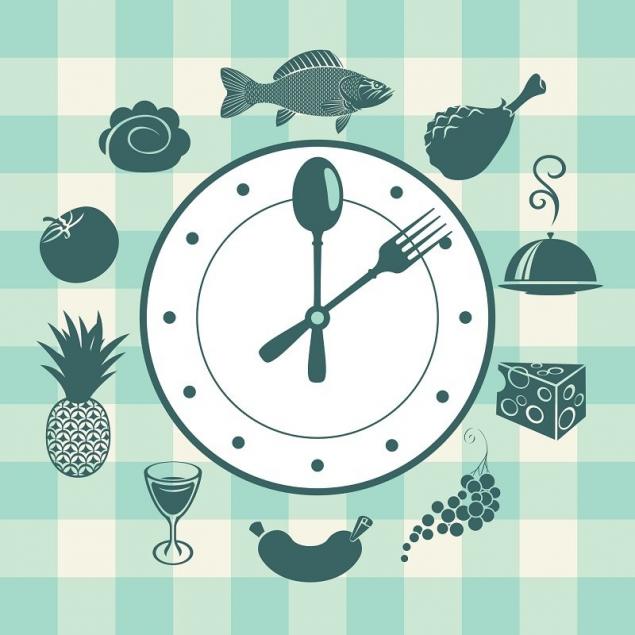
DepositPhotos
At one pole, the widely advertised fractional nutrition, whose supporters claim that you need to eat every 2-3 hours, it “accelerates your metabolism”, and the kilograms melt like spring snow.
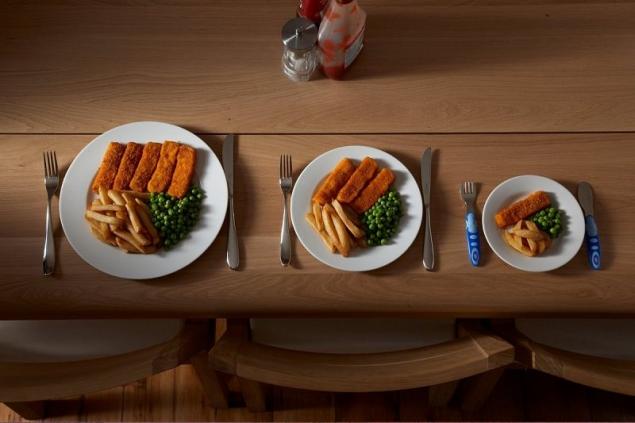
At the other pole. single-foodIt is sometimes considered a type of short-term fasting, but more often – the most natural mode of eating. Our ancestors ate this way for hundreds, maybe even thousands of years.
In some religions, this is a whole philosophical system, for example, Buddhist monks have a postulate: “To eat three times a day corresponds to animals, twice a day to people, once a day to saints.”
Five meals a day. The fractional feeding system, or "pasture diet" (from the English grazing - "grazing"), is designed for five or six meals a day. This is due to the fact that the appetite of different people can differ significantly.
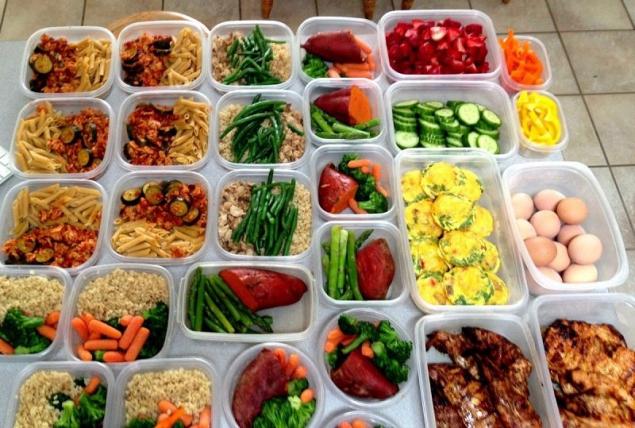
In addition, factors of physical activity, type of employment, the presence of chronic diseases are taken into account. The main idea of this system is as follows. The daily ration is divided into small portions. They are eaten at the same time intervals +/- 1 hour.
Frequent meals stimulate the body to be confident that nutrients will arrive at a certain time and it does not need to accumulate them in reserve.
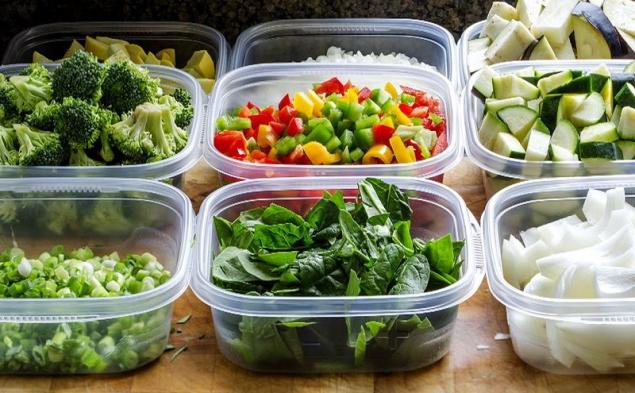
Fractional nutrition will appeal to those who are scared off by standard diets primarily by hunger. An increase in the number of meals and a decrease in portion volume does not give the body (in the usual sense) to get hungry.
Benefits of the “grassland diet”
Usually patients, confident that fractional nutrition eliminates hunger, are surprised to find that not only do they want to eat, but almost all the time they think about food, anxiously listening to the body and looking at the clock: is it time to have a snack? And yes, they do.

“Five meals a day turns you into a constantly grazing sheep, thinking only about food,” one of the clients of an online weight loss program describes her experience of fractional eating.
Those who propose to constantly “refill the furnace” in order to disperse the metabolism (admittedly, you probably encountered such advice), should remember that the full digestion time of the average portion of food is about 5-6 hours.
And if you do not sing once, it will not affect the metabolic rate, and the body will not begin to lose muscle mass and eat itself.
Scientific studies do not find evidence that with the same calorie intake, there is any difference in whether these calories are broken down into 3 meals or 6.
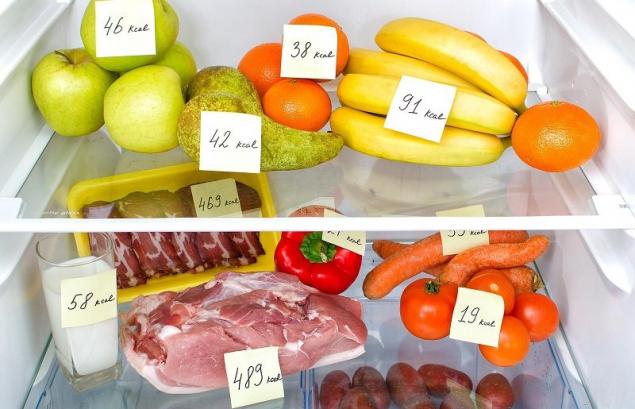
How you distribute calories is your business and depends on your lifestyle and eating habits. Does not approach five meals a day and the main goal of weight loss is fat burning.
Why it's bad for weight loss
People with hormonal disorders, insulin resistance and similar health problems are simply contraindicated to eat 6-7 times a day.
Who can? Those who are really constantly and actively training, that is, professional athletes: in this case, an additional one or two meals, taking into account increased energy costs, will be in the topic.
Short-term fasting is a dietary regimen in which for 16-18 hours you use only water, and the rest of the time you eat as much as you want, but without overeating and harmful food.

Disposable food can be called a fashion trend, but such eating patterns have already been met in history. The ancient Greeks ate once a day. They took great care of their digestion, and eating more than once a day was considered gluttony.
One-time nutrition will help to lose weight and stabilize weight, because calorie intake will decrease, in other words, you will eat less, as you will get rid of constant snacks.
This diet does not involve strict restrictions in products and allows you to choose any convenient time - breakfast, lunch or dinner, although the end of the working day is preferable.
In addition, a single meal helps cleanse the body between meals. You will be freed from excess water, the vessels will be renewed, and the extra calories will not have time to “settle” at the waist.
A one-time diet can only be recommended for healthy people. Categorically, you should not switch to this method for people who have problems with the gastrointestinal tract and diseases of the endocrine system. The mode of work and physical activity should also be taken into account.
Although, if we talk about physical exertion, adherents of a disposable diet plan were more common among people working physically. A friend of the builder eats once a day in the evening. According to him, this allows you to work productively throughout the day without feeling heavy.
Benefits of disposable food
The J. Salk Institute for Biological Research in La Oya (San Diego, USA) conducted an experiment in 2012, the results of which confirmed that eating a little all day is more dangerous than eating the same amount of food in a short time.
Scientists divided the mice into two groups and put them on a high-fat diet. Some ate a daily serving in 8 hours and starved the other 16. The second one slowly ate throughout the day. As a result, the first mice came out of the experiment slightly built, and the second decreased metabolism, they gained weight.
Frequent snacking leads to obesity and fatty liver, as evidenced by a study conducted by a group of scientists from the Netherlands. Intercepts are simply detrimental to our circadian clock, working in unison with the satiety hormone leptin.
One study found that when the total daily number of calories is unchanged (but with a lack of calories – for weight loss), there is no reduction in body weight, even when the frequency of meals per day increases from one to nine.

For ordinary people who are not burdened with sports, and for people with overweight, the frequency of meals does not matter. You can eat 1 time a day, you can 9 times a day - the result will be the same, it all depends on the number of calories consumed per day, and not on the number of meals.
Finally, it should be recalled that, firstly, any diet should begin with a consultation with a specialist, and secondly, the path to weight loss is always the rejection of harmful food. What kind of diet is right for you? Tell me in the comments.
"Site" Regularly introduces readers to the most popular diets. The Mediterranean diet is one of the most popular food systems in Europe. It is also the only diet recognized as a national heritage by UNESCO.
The English diet for 21 days is quite popular due to its effectiveness - it allows you to reduce weight by 10-18 kg. It is also easy to carry and does not require special material costs.

But the final answer was never found. To this day, scientists have not come to a consensus: the discussion continues, as the research data are contradictory. Let us consider two polar points of view.

DepositPhotos
At one pole, the widely advertised fractional nutrition, whose supporters claim that you need to eat every 2-3 hours, it “accelerates your metabolism”, and the kilograms melt like spring snow.

At the other pole. single-foodIt is sometimes considered a type of short-term fasting, but more often – the most natural mode of eating. Our ancestors ate this way for hundreds, maybe even thousands of years.
In some religions, this is a whole philosophical system, for example, Buddhist monks have a postulate: “To eat three times a day corresponds to animals, twice a day to people, once a day to saints.”
Five meals a day. The fractional feeding system, or "pasture diet" (from the English grazing - "grazing"), is designed for five or six meals a day. This is due to the fact that the appetite of different people can differ significantly.

In addition, factors of physical activity, type of employment, the presence of chronic diseases are taken into account. The main idea of this system is as follows. The daily ration is divided into small portions. They are eaten at the same time intervals +/- 1 hour.
Frequent meals stimulate the body to be confident that nutrients will arrive at a certain time and it does not need to accumulate them in reserve.

Fractional nutrition will appeal to those who are scared off by standard diets primarily by hunger. An increase in the number of meals and a decrease in portion volume does not give the body (in the usual sense) to get hungry.
Benefits of the “grassland diet”
- Fractional nutrition for weight loss allows you to smoothly and carefully reduce the daily number of calories and physically reduce the amount of food - without unnecessary stress and acute hunger.
- Fractional nutrition normalizes insulin production and blood sugar levels, so this eating style is useful for prediabetic conditions (discuss this with your doctor!).
- Frequent nutrition in small portions is an effective prevention of metabolic failures caused by overload of the gastrointestinal tract and excretory systems of the body.
- Getting used to fractional nutrition is quite simple.
Usually patients, confident that fractional nutrition eliminates hunger, are surprised to find that not only do they want to eat, but almost all the time they think about food, anxiously listening to the body and looking at the clock: is it time to have a snack? And yes, they do.

“Five meals a day turns you into a constantly grazing sheep, thinking only about food,” one of the clients of an online weight loss program describes her experience of fractional eating.
Those who propose to constantly “refill the furnace” in order to disperse the metabolism (admittedly, you probably encountered such advice), should remember that the full digestion time of the average portion of food is about 5-6 hours.
And if you do not sing once, it will not affect the metabolic rate, and the body will not begin to lose muscle mass and eat itself.
Scientific studies do not find evidence that with the same calorie intake, there is any difference in whether these calories are broken down into 3 meals or 6.

How you distribute calories is your business and depends on your lifestyle and eating habits. Does not approach five meals a day and the main goal of weight loss is fat burning.
Why it's bad for weight loss
- When you eat for hours (2 or 3 snacks), your body constantly produces insulin, which causes the body to work in the so-called absorption phase. This means that the body stores sugar and prevents enzymes from burning fat.
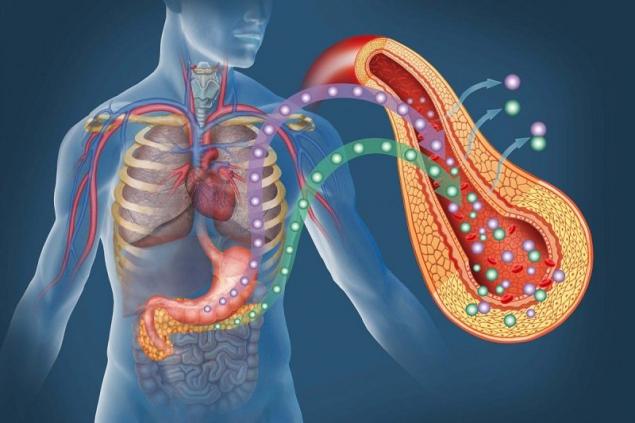
We all know that the body primarily uses the most affordable source of energy – sugar (carbohydrates) and last – fat. If you throw in new sources of sugar every two hours, it never gets to fat.
The goal of losing weight is to put the body into a post-absorption phase when it starts using the energy we store for survival – the same fat! Obviously, with frequent nutrition, this goal is not achieved.
Each meal is a chain of reactions of the body. And, believe me, for him to digest even something elementary is not so easy: enzymes are released, peristalsis is turned on, glands are launched and hormones are produced. - If you constantly eat, you easily lose control of what you eat, become focused on food, often feel hungry, overeat. Not to mention the fact that snacks rarely contain a normal combination of macronutrients (proteins, fats, carbohydrates).

DepositPhotos - You feel dissatisfied. Studies show that people often feel hungry after small portions of food, do not feel satiety - this, of course, leads to overeating and breakdowns. Culture and eating habits are collapsing - people simply stop eating normal food and think in terms of meals. You don’t have lunch or dinner anymore, you just have to bite.
People with hormonal disorders, insulin resistance and similar health problems are simply contraindicated to eat 6-7 times a day.
Who can? Those who are really constantly and actively training, that is, professional athletes: in this case, an additional one or two meals, taking into account increased energy costs, will be in the topic.
Short-term fasting is a dietary regimen in which for 16-18 hours you use only water, and the rest of the time you eat as much as you want, but without overeating and harmful food.

Disposable food can be called a fashion trend, but such eating patterns have already been met in history. The ancient Greeks ate once a day. They took great care of their digestion, and eating more than once a day was considered gluttony.
One-time nutrition will help to lose weight and stabilize weight, because calorie intake will decrease, in other words, you will eat less, as you will get rid of constant snacks.
This diet does not involve strict restrictions in products and allows you to choose any convenient time - breakfast, lunch or dinner, although the end of the working day is preferable.
In addition, a single meal helps cleanse the body between meals. You will be freed from excess water, the vessels will be renewed, and the extra calories will not have time to “settle” at the waist.
A one-time diet can only be recommended for healthy people. Categorically, you should not switch to this method for people who have problems with the gastrointestinal tract and diseases of the endocrine system. The mode of work and physical activity should also be taken into account.
Although, if we talk about physical exertion, adherents of a disposable diet plan were more common among people working physically. A friend of the builder eats once a day in the evening. According to him, this allows you to work productively throughout the day without feeling heavy.
Benefits of disposable food
- Increased mental productivity
- Appetite declines
- Set the ideal weight
- There is psychological harmony.
- The amount of energy increases
The J. Salk Institute for Biological Research in La Oya (San Diego, USA) conducted an experiment in 2012, the results of which confirmed that eating a little all day is more dangerous than eating the same amount of food in a short time.
Scientists divided the mice into two groups and put them on a high-fat diet. Some ate a daily serving in 8 hours and starved the other 16. The second one slowly ate throughout the day. As a result, the first mice came out of the experiment slightly built, and the second decreased metabolism, they gained weight.
Frequent snacking leads to obesity and fatty liver, as evidenced by a study conducted by a group of scientists from the Netherlands. Intercepts are simply detrimental to our circadian clock, working in unison with the satiety hormone leptin.
One study found that when the total daily number of calories is unchanged (but with a lack of calories – for weight loss), there is no reduction in body weight, even when the frequency of meals per day increases from one to nine.

For ordinary people who are not burdened with sports, and for people with overweight, the frequency of meals does not matter. You can eat 1 time a day, you can 9 times a day - the result will be the same, it all depends on the number of calories consumed per day, and not on the number of meals.
Finally, it should be recalled that, firstly, any diet should begin with a consultation with a specialist, and secondly, the path to weight loss is always the rejection of harmful food. What kind of diet is right for you? Tell me in the comments.
"Site" Regularly introduces readers to the most popular diets. The Mediterranean diet is one of the most popular food systems in Europe. It is also the only diet recognized as a national heritage by UNESCO.
The English diet for 21 days is quite popular due to its effectiveness - it allows you to reduce weight by 10-18 kg. It is also easy to carry and does not require special material costs.
Charging after the fiftieth anniversary
The advice of the psychic Kurilova: “To keep up with luck for the next year, I recommend it...”











